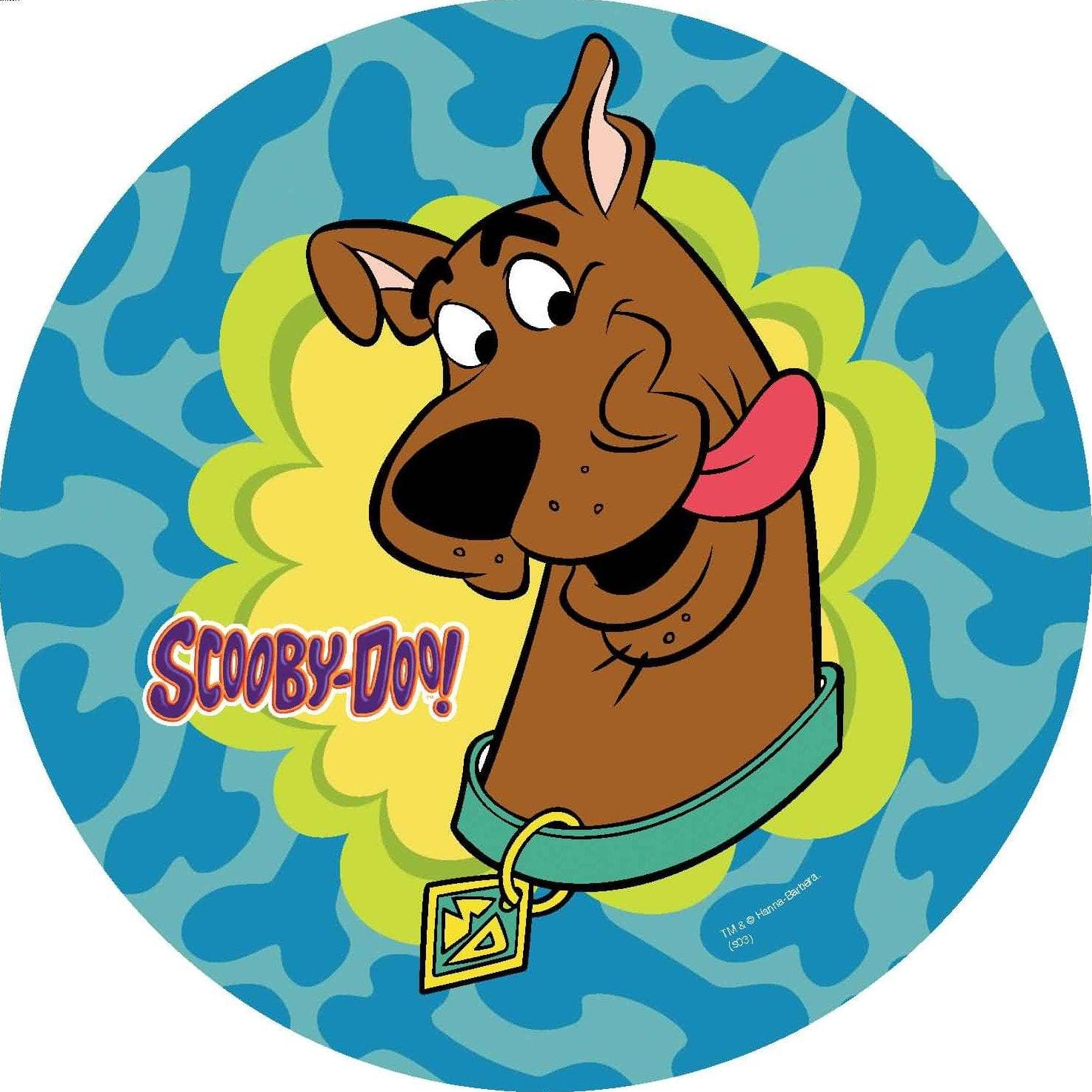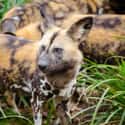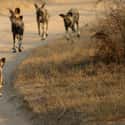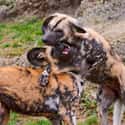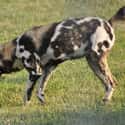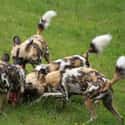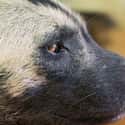-
(#8) Each Wild Dog Has Its Own Unique Coat Pattern Which Helps Other Pack Members Recognize Them
Lycaon pictus is the scientific name of the African wild dog and means "painted wolf." It's a very fitting name since each dog has a pattern of markings that may feature brown, white, black, red, or yellow, and is unique to each individual dog, much like a fingerprint. Since no two dog looks alike, this helps to not only distinguish each from one another, but also helps other dogs easily identify members of their pack. The tails of African wild dogs are very bushy with a bit of white on the tip, which helps them flag each other when using tail signals from a distance, especially while hunting. The patterns and earthy colors the dogs sport also help them camouflage into their surroundings very easily and adds to their effectiveness at capturing their prey.
-
(#6) Packs Contain Six To Twenty Members And Are Led By Monogamous Breeding Pair
African wild dog packs often contain a lot of members, both in order to better take care of each other and to hunt more efficiently. Packs contain as many as twenty members and each pack is dominated by a couple who breed only with each other. The rest of the pack is made up of other male dogs who do not breed, but occasionally another female will join. She sometimes becomes a pair with another male and they'll create their own offspring while still acting as subordinates. Long ago, wild dogs used to band together in greater numbers and some packs may have contained as many as 40 members. Since becoming endangered, wild dog packs have become much smaller.
-
(#5) They Have Vocalizations And Rituals To Greet Each Other
Unlike the lone cheetahs and badgers of the world, African wild dogs are extremely social and enjoy hanging out with one another. They can be very talkative as well and communicate with each other through different sounds, including whining, howling, and barking. Tail movement and touching each other with their noses or paws also give signals to each other. African wild dogs have been observed engaging in rituals when they greet one another where they may jump, shake their head, or vocalize their happiness at seeing their friends. Before a hunt, they may also help pump each other up like a sports team before a big game by licking, wagging, and yelping.
-
(#9) Researchers Believe Compatibility Play A Part In Pack Formation
African wild dogs tend to stick by their pack even while resting and unlike wolves, wild dogs are rarely seen on their own. Although researchers haven't been able to figure exactly how a group of wild dogs form themselves into a pack, they believe compatibility between the dogs matters. They have observed dogs undertaking a "trial" group that will separate without conflict if things don't work out, as well as separate hierarchies between the males and females of the pack. Because the wild dogs are so non-aggressive towards one another, how dominance is decided among pack members is a mystery as well, although it's possibly based on age. Creating the best possible pack is probably the main motive for the dogs, as having a tight knit group with members able to effectively work together will provide the best life for everyone in the pack.
-
(#4) Packs Hunt Cooperatively With Finely Tuned Choreography
African wild dogs have a nasty reputation partly due to the way they hunt and how efficient of a system it is. They work together in groups and make a cooperative attack where every dog has a role. Remaining organized at all times, the dogs will identify a worthy target, and a team of several dogs will begin the chase. If the first wave of dogs gets tired before the kill, they switch with another team and the chase continues. Using this method, African dogs can run much longer than their prey, which eventually tires and is killed. Although they are fond of hunting antelopes, by working together they can also attack wildebeests or other large prey.
-
(#11) African Wild Dogs Are Nomadic And Often Travel Over A Very Large Area
The territories of African wild dog covers a wide area and they tend to often move around within their space. They may even call an area as big as 900 square miles their home. To ensure food is plentiful, wild dogs have adopted a nomadic lifestyle. However, during the times pups are born, the pack will stop moving and limit their hunting to a certain area around the den. Requiring such a large area to live has caused the dogs trouble as humans take over more space. Parts of the dogs' area may now contain houses, farms, or roads that cause trouble for both the dogs and the humans.
New Random Displays Display All By Ranking
About This Tool
African wild dogs are the rarest carnivores in Africa. Because of their powerful hunting skills, African wild dogs are not appreciated by those who try to raise animals. With the reduction of habitat and competition from other large carnivores, their numbers are declining and became endangered. African wild dogs mainly live in the dry grasslands and semi-desert areas of Africa, never activities in dense forests.
The African wild dogs are cooperative hunting animal and live in close groups. It is very rare to have serious fights in the wild dog family. Although they look fierce, they are actually social dogs. The random tool will help you to know more information about African wild dogs.
Our data comes from Ranker, If you want to participate in the ranking of items displayed on this page, please click here.

